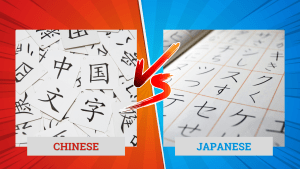Have you ever wondered what languages are spoken in Vietnam? Located in Southeast Asia, this vibrant country is home to approximately 98 million people. As a rapidly developing nation with a rich cultural heritage, Vietnam’s society is a tapestry of ethnicities, cultures, and languages. The country’s unique history, marked by periods of Chinese rule, French colonization, and waves of migration, has resulted in a diverse linguistic landscape that reflects its multicultural ethos. Read on to discover the official and foreign languages spoken in this fascinating country.
The Official Language of Vietnam
Vietnamese
Vietnamese (Tiếng Việt) is the official and national language of Vietnam, spoken by about 85% of the population. It belongs to the Austroasiatic language family and has been heavily influenced by Chinese over the centuries. Vietnamese uses a Latin-based alphabet called chữ Quốc ngữ, which was developed by Jesuit missionaries in the 17th century and officially adopted in the early 20th century.
Vietnamese is divided into three main dialects:
- Northern Vietnamese (Hanoi)
- Central Vietnamese (Hue)
- Southern Vietnamese (Ho Chi Minh City)
Each dialect has unique pronunciation, vocabulary, and usage nuances. The Northern dialect is considered the standard and is used in education and official communication.
Minority Languages in Vietnam
Vietnam is home to 54 officially recognized ethnic groups, many of which speak their own languages. These minority languages play a crucial role in preserving cultural identities and traditions. Some of the most prominent minority languages include:
Tày and Nùng
Spoken primarily in the northern regions, Tày and Nùng belong to the Tai-Kadai language family. These languages are related to Thai and Lao.
Hmong
The Hmong language, part of the Hmong-Mien language family, is spoken by the Hmong people who reside mainly in the northern highlands of Vietnam.
Khmer
Khmer is spoken by the ethnic Khmer population, primarily in the Mekong Delta region. It is closely related to the Khmer language spoken in Cambodia.
Muong
Muong is an Austroasiatic language closely related to Vietnamese. It’s spoken by about 1.5 million people in the mountainous regions of northern Vietnam.
Language Usage Statistics
According to recent estimates, the language usage in Vietnam is as follows:
- Vietnamese: 85.32%
- Tay: 1.92%
- Thai: 1.89%
- Muong: 1.51%
- Khmer: 1.37%
- Other: 7.99%
Foreign Languages in Vietnam
Chinese
Chinese, particularly Cantonese and Mandarin, is spoken by the Chinese-Vietnamese community and plays a significant role in cultural and commercial exchanges.
French
Due to Vietnam’s history as a French colony, French still maintains a presence in the country, especially among older generations and in some educational and cultural contexts.
English
English has become increasingly popular as a second language in Vietnam, especially among younger generations. It is widely taught in schools and used in business, tourism, and other sectors.
The Importance of Linguistic Diversity
Vietnam’s linguistic diversity is a testament to its rich cultural heritage and historical influences. While Vietnamese remains the dominant language, the government recognizes the importance of preserving minority languages to maintain cultural identities and promote social harmony.
For businesses looking to expand into Vietnam, understanding the linguistic landscape is crucial. While Vietnamese is essential for broad communication, knowledge of regional dialects and minority languages can be valuable in specific areas or communities. Additionally, proficiency in English is increasingly important in urban centers and for international business interactions.
The Importance of Working with an APAC Specialist for Vietnamese Translation
When targeting the Vietnamese market or translating content into Vietnamese, partnering with an APAC specialist is crucial for success. Here’s why:
- Cultural Nuances: APAC specialists have deep knowledge of Vietnamese culture, ensuring translations are culturally appropriate and resonate with the local audience.
- Language Expertise: They understand the complexities of the Vietnamese language, including dialects and character-based writing systems.
- Market Insights: APAC specialists possess valuable insights into the Vietnamese market, helping businesses tailor their content effectively.
- Technical Proficiency: They have expertise in website localization and technical translations, crucial for digital presence in Vietnam].
- Quality Assurance: APAC specialists employ rigorous quality control processes to ensure accurate and high-quality translations.
At EC Innovations, we provide professional Vietnamese translation services and many other languages spoken in Vietnam. Contact us to find out how we can support your language needs and help you succeed in this dynamic Southeast Asian market.





